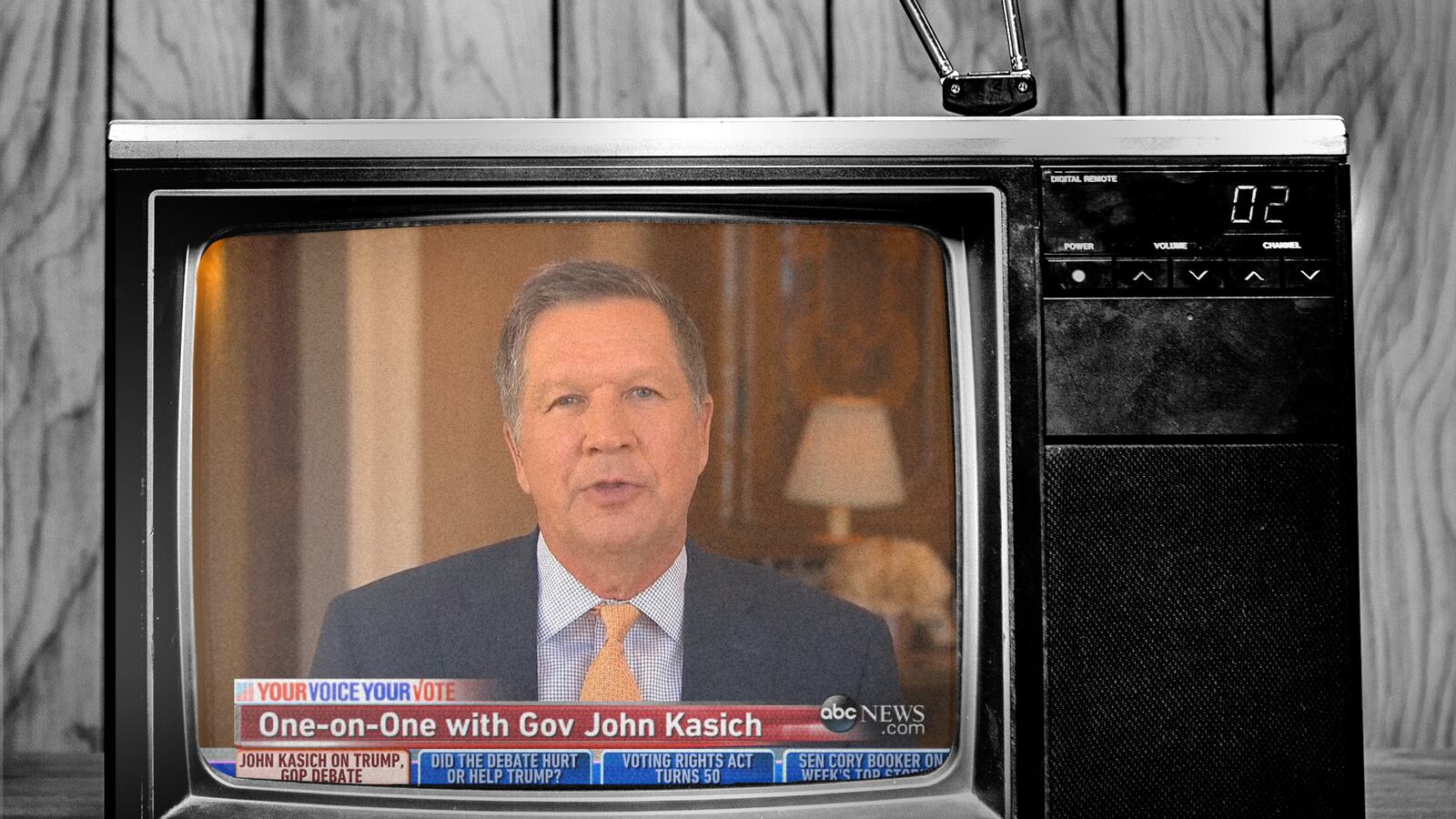By Linda Qiu, Jon Greenberg and Katie Sander
The news shows served as ground zero for GOP debate fallout Sunday, with most of the political discussion focused on frontrunner Donald Trump’s personal critique of Fox News host Megyn Kelly.
No host tried harder in three phone interviews with Trump than NBC’s Chuck Todd to make Trump explain why he said Kelly had “blood coming out of her eyes, blood coming out of her wherever” during the debate.
“You went after popular Bette Midler, you went after people like Gail Collins,” Todd said. “Why do you have to go after the look? This is what some women find offensive, Mr. Trump, is that you go to looks.... It's something out of Mad Men, sir.”
Trump did not apologize, and pundits on Meet the Press said his behavior does nothing to help the GOP bring in more female voters.
“I think it’s important to remember the Republican presidential nominee hasn’t won women since 1988,” said Heather McGhee, president of the liberal economic policy group Demos. “So this is a very deep problem for the party.”
Her claim about the GOP’s 26-year losing streak for the female vote rates True.
Republicans have not won a larger share of female voters than Democrats since the 1988 election, when George H.W. Bush earned just 1 percentage point more of the female vote than Democrat Michael Dukakis, according to datasets that rely on surveys, which include exit polling data, from several sources.
For comparison, Obama won 56 percent of the female vote in 2008, and 55 percent in 2012.
Republicans commanded a larger share of women voters from the suffrage era to the 1950s, but experts say the growth of the feminist movement, increased labor force participation among women, and support for government programs for the poor, children and families have pushed more women to the Democratic side.
Other factors include the rise of the powerful pro-choice PAC Emily’s List in the 1980s and 1990s and the controversy over Supreme Court nominee Clarence Thomas, added Karen O’Connor, a professor of political science at American University's Women & Politics Institute.
"Women were very angry," O’Connor said of the all-male Senate Judiciary Committee’s questioning of Thomas’ former employee, Anita Hill, who accused Thomas of sexual harassment.
On ABC’s This Week, Gov. John Kasich, R-Ohio, steered clear of calling Trump a problem for the Republican Party when host George Stephanopoulos asked about him about the GOP frontrunner’s performance.
"What happened on Thursday is I was relaxed and I was able to talk about my record, balancing the federal budget, one of the chief architects, national security experience—turning Ohio around," he said.
Kasich’s claim that he was “one of the chief architects” in balancing the federal budget is a talking point we’ve heard several times, including on the debate stage. It rates Mostly True.
Kasich, who first won a seat in the House of Representatives in 1982, backed a balanced budget amendment when Republicans were in the minority, and he was a leading voice for the measure when a GOP wave put his party in charge of the House under Newt Gingrich in 1994.
Gingrich promoted Kasich over more senior lawmakers and made him chair of the House Budget Committee. Kasich’s big moment came in 1997.
The nation was poised for a balanced budget. Deficits had been shrinking for years, according to data from the Federal Reserve Bank of St. Louis. Between 1992 and 1996, they fell at an annual average rate of 24 percent each year.
When the Clinton administration submitted a budget that would eliminate the deficit by 2004, Kasich was the first Republican to reject and call for a do-over. In a February op-ed, Kasich wrote that "it is not that difficult to cobble together a budget that could at least appear to be balanced within five years." But he said a balanced budget amendment would force leaders to deal honestly with every budget in the future.
No amendment emerged, but a bipartisan deal was struck by July, and the Balanced Budget Act of 1997, sponsored by Kasich, had a clear path. Kasich was at Clinton’s side when the bill was signed into law. House Speaker Newt Gingrich said of Kasich, "More than any single man, he is responsible for balancing the budget."
While there is no question that Kasich was a key player in the writing and passage of that law, conservative and independent budget experts pointed to other caveats that also explain why a balanced budget was achievable.
Stephen Moore, the libertarian Cato Institute’s director of fiscal policy studies, gave the Republicans great credit for pushing for a balanced budget at the time, though he argued that spending cuts had little to do with the final result, as spending had risen $150 billion in two years. The balanced budget was mostly a result, he wrote, of a strong economy that created new tax revenues and a shrinking military budget.






